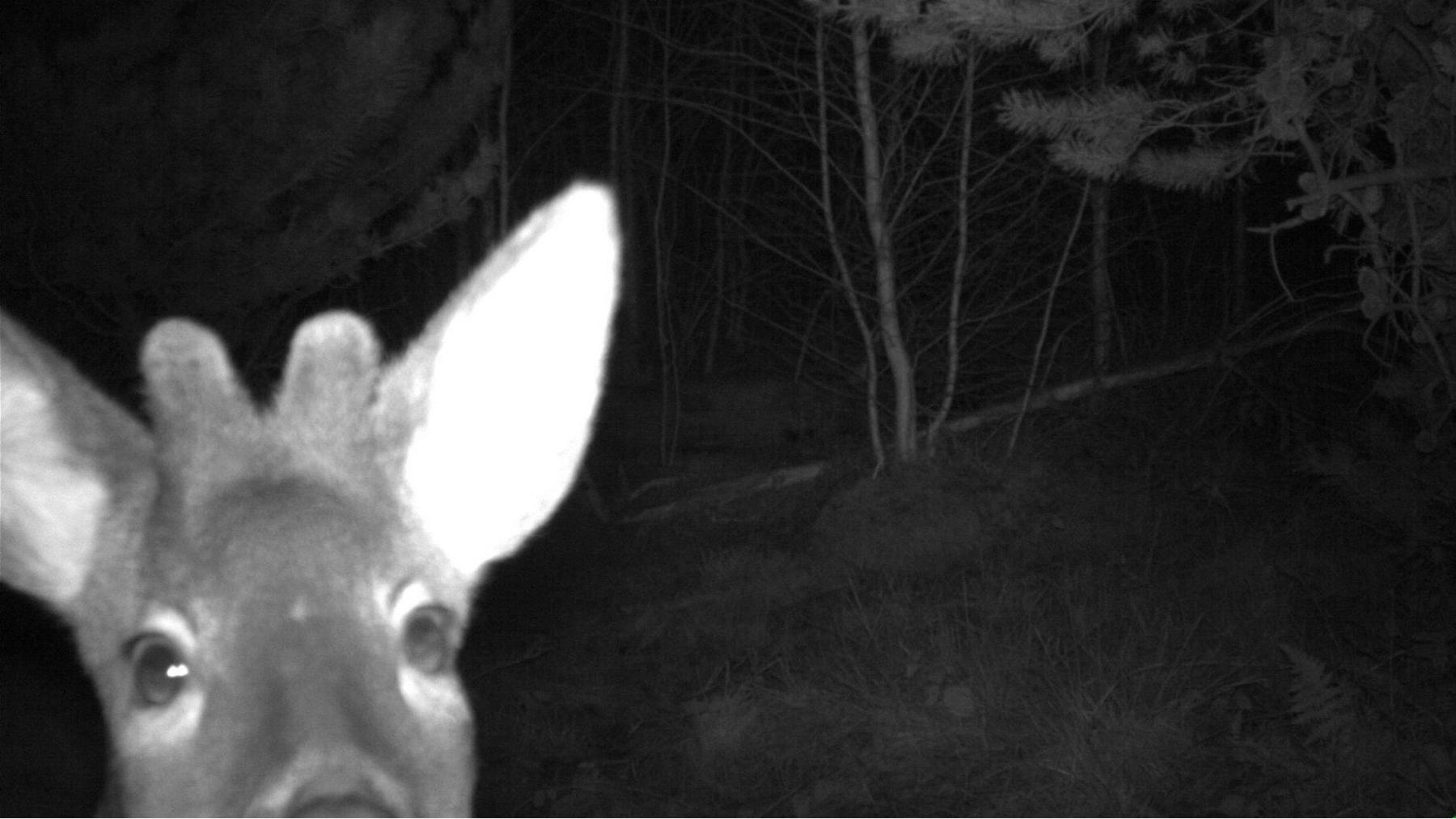Durham University appeals for help capturing wildlife on camera
- Published
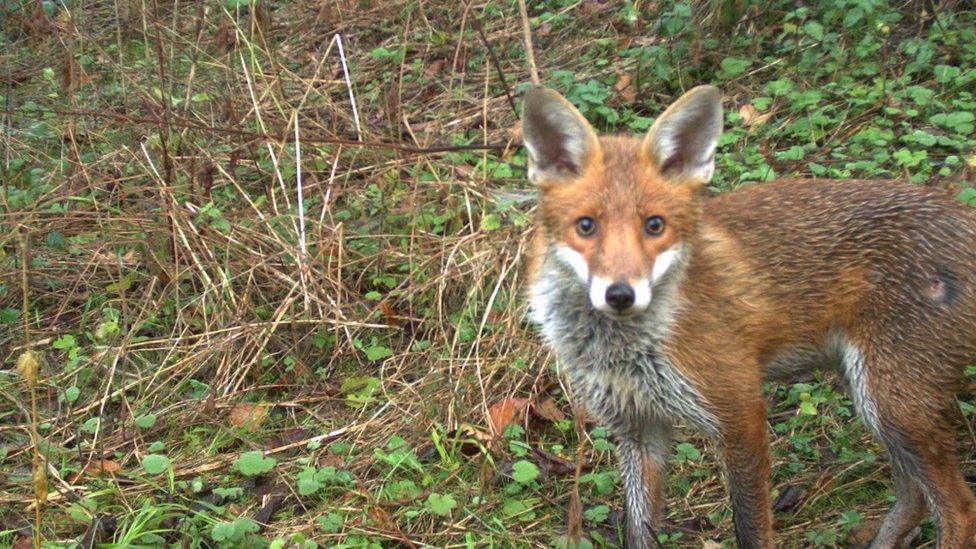
A red fox is captured looking straight at the camera
Scientists are appealing for help to collect camera trap images of mammals in a bid to build a better picture of their habits and behaviours.
Durham University founded the MammalWeb network, external nine years ago, setting up hidden cameras across the North East.
The project gathers data across the UK but wants to expand with help from people with camera traps.
It is hoped it could enhance understanding of how wildlife is coping with challenges such as climate change.
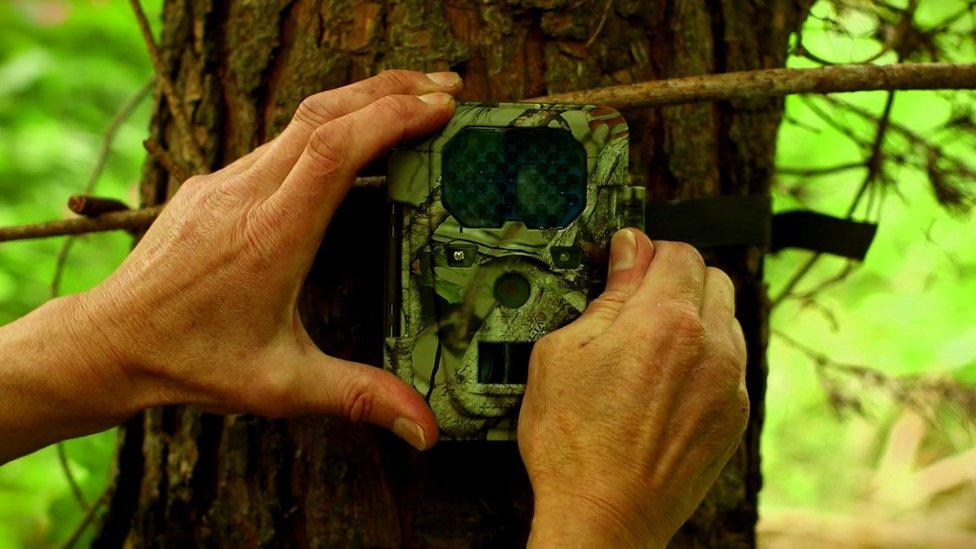
Concealed cameras capture images without disturbing wildlife
Footage captured by the university's "citizen scientists" from 2,500 sites across the country will be used to assist conservation work.
Prof Phil Stephens, co-founder of MammalWeb, from the university's department of biosciences, said: "We need to build a greater understanding of how climate change and events such as the droughts we experienced in the UK this summer will impact upon mammal distribution and behaviour."
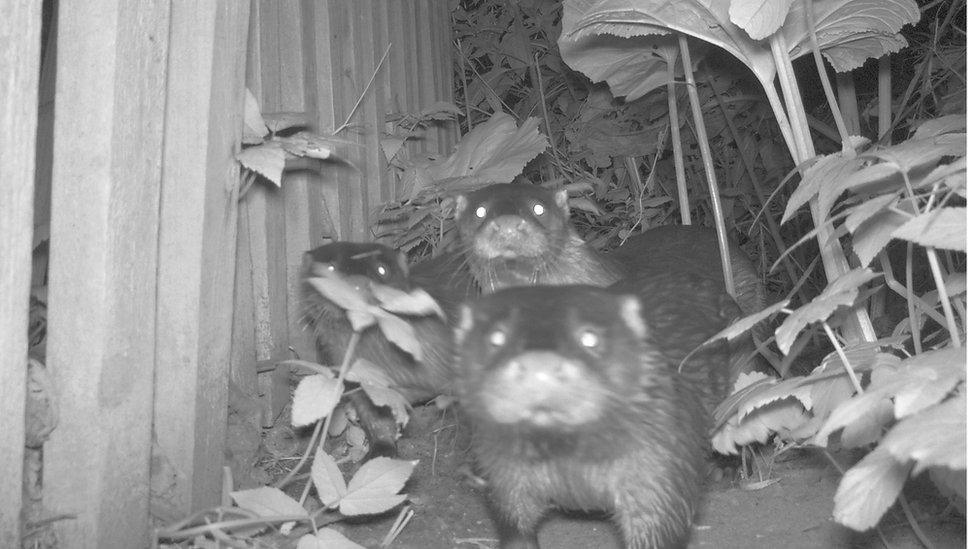
A bevy of otters look startled to have been caught on camera
Using camera traps, which take pictures of passing animals, volunteers have captured 440,000 images and videos.
Non-native UK species such as muntjac deer, fallow deer, grey squirrels, brown hares and rabbits have been caught on camera - as well as native UK species including red squirrels, badgers, otters, foxes, stoats, wild boar and pine martens.
Both North and South American members of the raccoon family which have the "potential to cause trouble for native wildlife" have also been snapped.
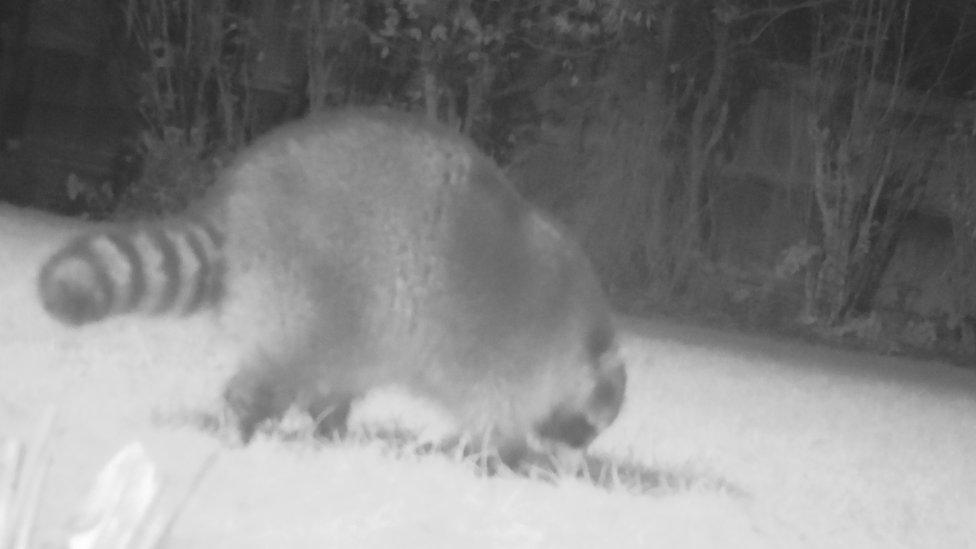
This raccoon - not a common sight in the North East - was filmed at night in Sunderland
Dr Pen-Yuan Hsing, also a co-founder of the project, said there were "thousands of people and organisations" capturing data on mammals via camera traps.
Dr Hsing added: "By getting involved, people can really make a difference to understanding and protecting the future of these amazing animals, which are integral to the biodiversity that we all intimately depend on."

Follow BBC North East & Cumbria on Twitter, external, Facebook, external and Instagram, external. Send your story ideas to northeastandcumbria@bbc.co.uk, external.
- Published1 September 2022
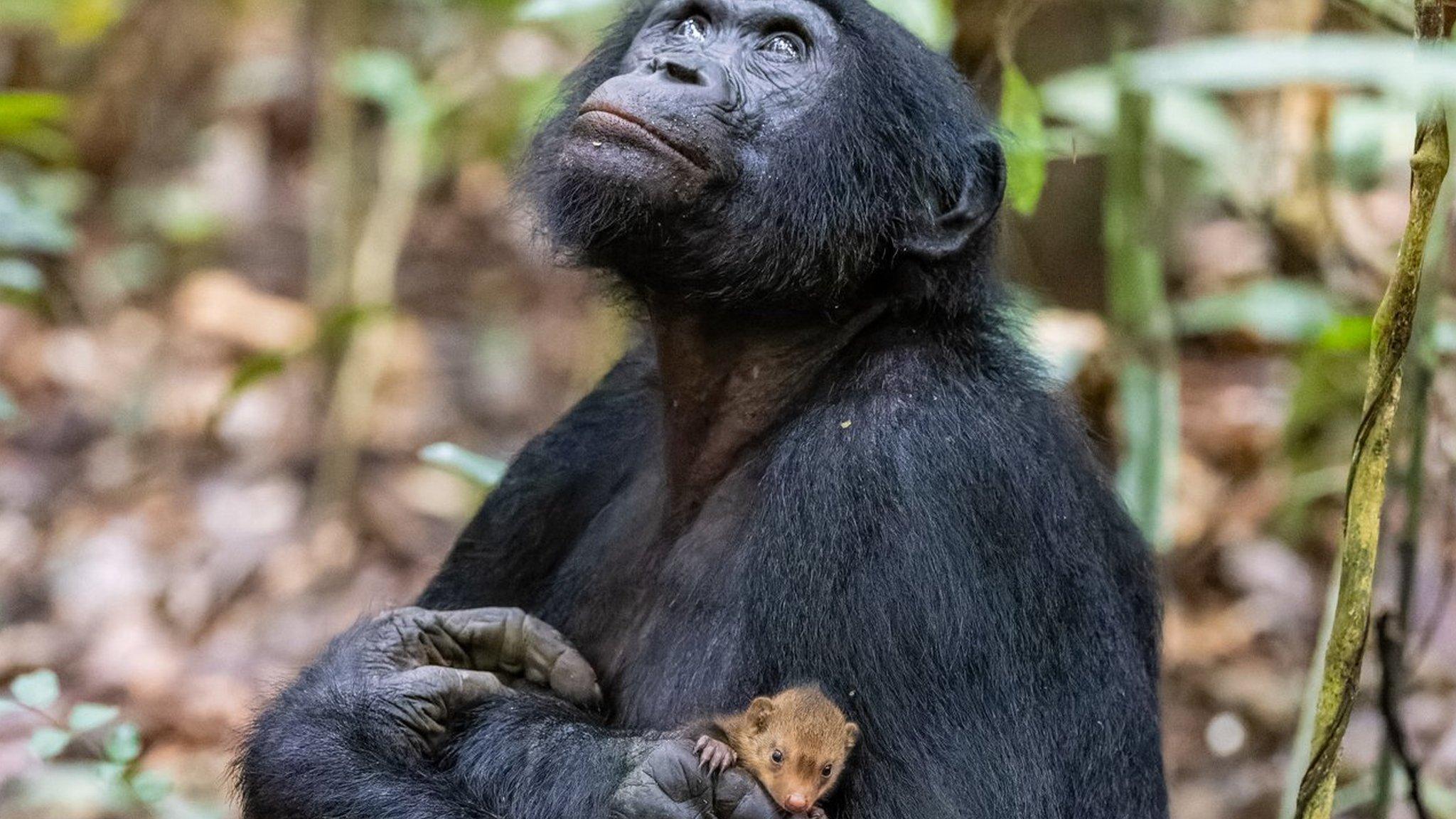
- Published13 October 2020
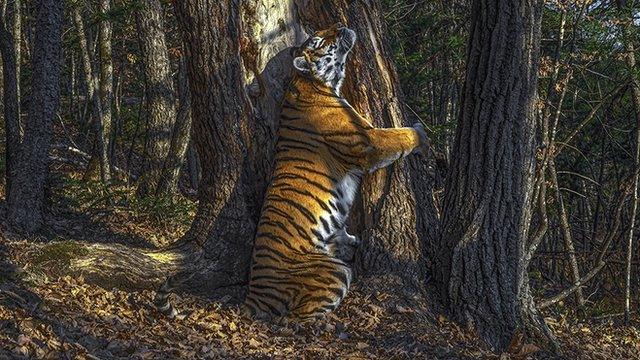
- Published30 May 2020
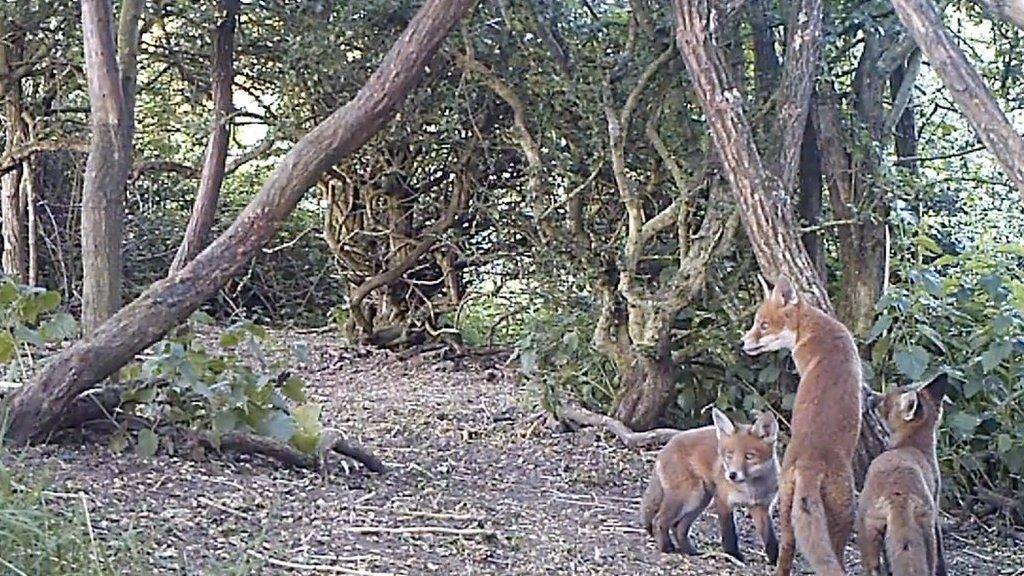
- Published14 January 2017
